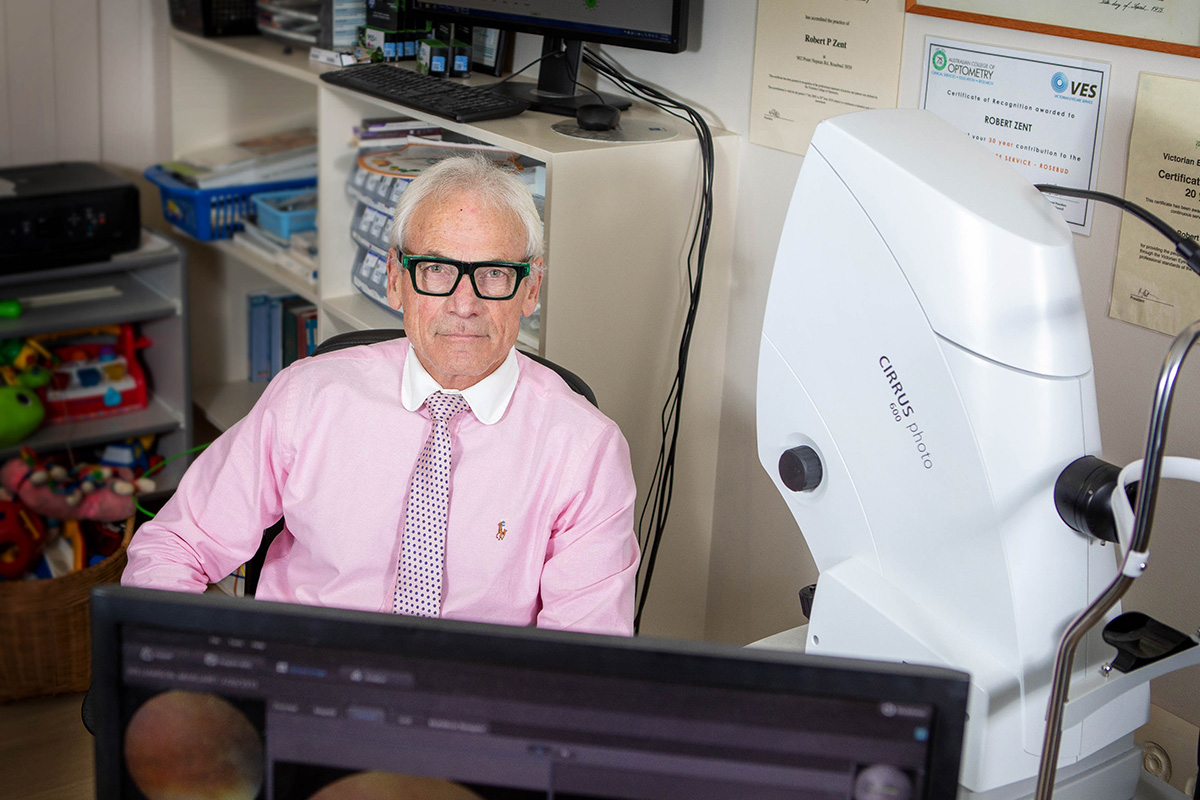This website uses cookies so that we can provide you with the best user experience possible. Cookie information is stored in your browser and performs functions such as recognising you when you return to our website and helping our team to understand which sections of the website you find most interesting and useful.
News
Turning a lens to research participation
New resources for optometrists and ophthalmologists will help patients register their interest in clinical research at the Centre for Eye Research Australia.
CERA’s macular researchers are joining forces with community-based eye care professionals to encourage more patients to register their interest in taking part in clinical studies.
They have developed a new set of resources which aim to increase community access to clinical research by encouraging more people with early stage or dry age related macular degeneration (AMD) to register their interest in participating.
Materials include digital posters, postcards and stickers for optometrists to display in their waiting rooms to encourage patients to learn about clinical research.
A registration pad will also allow eye care professionals to help their patients provide the most up-to-date status of their eye disease when registering their interest in studies for AMD.
Earlier intervention
Traditionally, clinical research into AMD has focussed on patients who present at hospital clinics with vision loss.
However, as research evolves, many new studies need people with either the early stages of AMD or the dry form of late AMD.
Helping these people, who more commonly seek treatment from community-based optometrists and ophthalmologists, participate in research is crucial to the future of new treatments.
“Studies increasingly require participants who have the early stages of AMD so we can identify those most at risk of losing their sight and determine the best ways to prevent vision loss,’’ says CERA Deputy Director and Head of Macular Research Professor Robyn Guymer AM.
“There are also many opportunities for people with the dry form of late AMD to take part in research. This is critical area of investigation as there are currently no approved treatments for this form of the disease.’’

Earlier intervention
Professor Guymer says her team has been researching AMD for over 25 years but finding suitable participants with the non-wet forms of AMD remains a challenge.
“These patients generally have good vision until late in their disease and they are much more likely to be visiting an optometrist or community ophthalmologist than a hospital,” she says.
“Also, optometrists have not traditionally had participation in research at the top of mind or considered the potential benefits there might be for their patients in participating in world-leading trials.
“We are trying to make it easier for optometrists and community ophthalmologists to let their patients know these opportunities exist, and for patients send us up to date, clinical information that makes matching them with appropriate studies much more efficient.”
Community support
Victorian optometrist Robert Zent has been part of a more formal optometry referral network with CERA’s macular research unit and has referred several patients for studies into CERA through his Rosebud practice over many years.
This includes a trial aiming to genotype patients with dry AMD for potential inclusion in gene therapy studies.
He says he hopes his role in research will lead to improved early AMD detection and treatment, and he encourages all optometrists to support research efforts where they can.
“In the last year or so the studies have expanded dramatically,” he says.
“The more people who present for research the more quickly we will learn more about AMD.”
AMD focus
These referral resources initially focus on AMD at all stages except for wet AMD, which requires an urgent referral for treatment, but CERA researchers plan to include other resources to help increase referrals for other eye diseases.
“Ideally we need to study and treat people with AMD before they reach a stage where their vision is at risk,” says Professor Guymer.
“We hope this will mean more people can access our research opportunities.”
If you want more information, receive the material or one of our researchers to visit your practice, please email Emily Glover at emily.glover@unimelb.edu.au.

